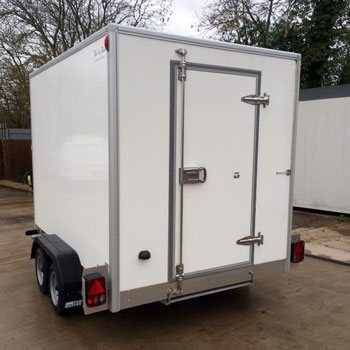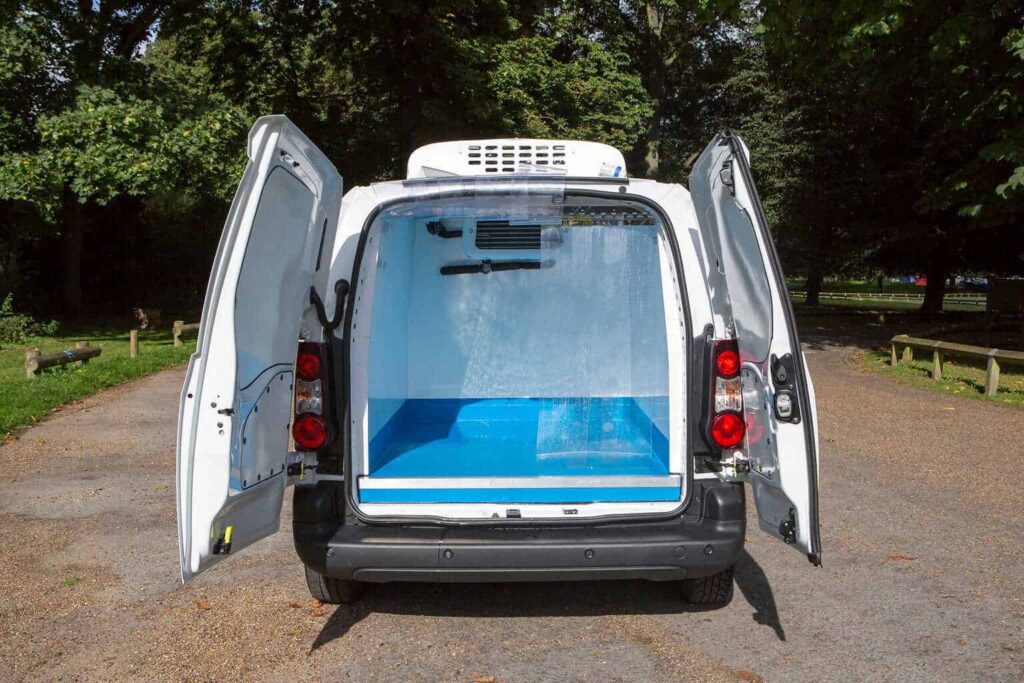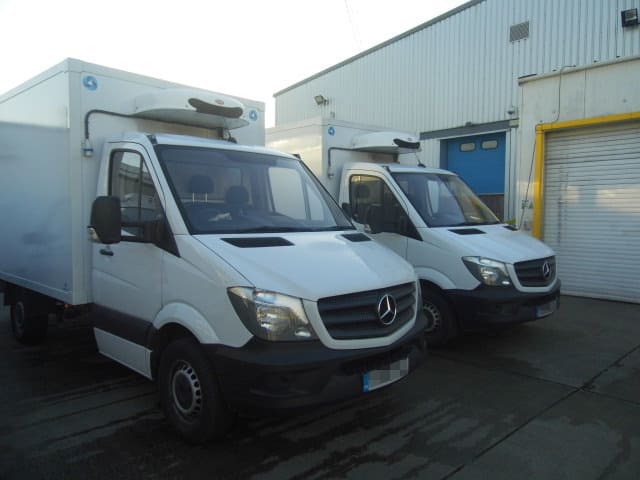Selecting the right refrigerated van is crucial for businesses relying on the safe and timely delivery of perishable goods.
Whether you’re in the catering, pharmaceutical, or floral industry, the vehicle you select will impact your operational efficiency, compliance with regulations, and overall business success.
Before making this significant investment, it’s essential to consider a few key factors. This guide will walk you through essential questions to ask before acquiring a refrigerated van, ensuring an informed decision tailored to your specific business needs.
1. What Goods Are You Transporting?
Understanding the nature of the goods you’re transporting is paramount. Different products have varying temperature requirements and sensitivity to temperature fluctuations.
For instance, a florist transporting delicate blooms will have different needs from a caterer delivering hot meals or a pharmaceutical company transporting vaccines. Evaluate the fragility, expiration rate, and specific temperature needs of your products. Also, consider more complex requirements if you’re carrying mixed loads that may require different compartments with varying temperatures.
2. What Temperature Do You Need to Maintain?
The required internal temperature of your refrigerated van will depend on the goods you’re transporting. Perishable food items, for instance, generally need to be kept between 0°C and 8°C, while frozen goods require temperatures as low as -20°C.
Pharmaceuticals might have even more stringent requirements. Understanding these needs is crucial for selecting a van with the right refrigeration capabilities.
3. What Size Van Do You Require for Your Business?
The size of your van should align with your business volume and the nature of your goods. A larger van might be necessary for bulk deliveries or if your items are bulky or require substantial spacing. On the other hand, a smaller van might suffice for more frequent, smaller deliveries. Consider the van’s payload capacity — the weight of the goods it can carry — and ensure it aligns with your typical load weight.
When choosing a refrigerated van, one of the most crucial considerations is the size and capacity of the vehicle. The right choice will depend on the volume of goods you need to transport, the nature of those goods, and the specific requirements of your deliveries.
Small Refrigerated Vans:
- Example Models: Ford Transit Connect, Renault Kangoo, Maxis eDeliver3
- Suitable For: Small businesses, florists, local food deliveries, or pharmaceutical transport.
- Advantages: These vans are ideal for navigating urban environments and tight streets. Their smaller size means they’re more fuel-efficient and easier to park. They’re perfect for businesses that make frequent, small deliveries.
Medium Refrigerated Vans:
- Example Models: Mercedes-Benz Vito, Volkswagen Transporter, Maxus eDeliver9
- Suitable For: Medium-sized businesses, regional food distributors, and catering services.
- Advantages: Medium vans offer a good balance between capacity and manoeuvrability. They can handle a larger volume of goods while still being relatively easy to drive in urban and suburban settings. They often come with more customisation options for shelving and compartments.
Large Refrigerated Vans:
- Example Models: Ford Transit, Mercedes-Benz Sprinter, Iveco Daily
- Suitable For: Large-scale operations, wholesale food transport, and long-distance deliveries.
- Advantages: Large vans are best for businesses that need to move a significant amount of goods in one trip. They offer ample space for shelving and compartments, and the larger payload means fewer trips, which can be more cost-effective for long distances. However, they are less fuel-efficient and harder to manoeuvre in tight spaces.
Luton and Box Vans:
- Example Models: Luton Box Van,
- Suitable For: Large-scale logistics, event catering, furniture, and appliance transport.
- Advantages: These vans offer the most significant space and are often used for large or bulky items. The box shape allows for maximum storage and easy loading and unloading. They’re ideal for businesses that require substantial space and don’t need to navigate small roads frequently.
Temperature-Specific Vans:
- Suitable For: Businesses with very specific temperature requirements.
- Advantages: These specialised vans are designed to maintain precise temperatures and are essential for transporting sensitive goods like pharmaceuticals or high-quality food products. They might come in various sizes, from small to large, but their defining feature is the ability to maintain a specific temperature range accurately.
Key Considerations:
- Payload vs Volume: Understand the difference between payload (the weight the van can carry) and volume (the space available). Some goods might be light but bulky, while others might be heavy but compact.
- Accessibility: Consider how the size of the van will affect where it can go and how easily you can load and unload goods. Larger vans might require loading docks.
- Running Costs: Generally, the larger the van, the higher the running costs. Fuel consumption, insurance, and maintenance costs should be factored into your decision.
- Licence Requirements: Ensure that the drivers have the appropriate licence for the size of the van, especially for larger vehicles.
4. Do You Need Any Customisation for Your Refrigerated Van?
Customisation can significantly enhance the functionality of your refrigerated van. Shelving, compartments, and internal layouts can be tailored to suit your products’ specific needs and delivery processes.
For example, a multi-compartment van can allow different temperature zones, ideal for transporting a variety of products. Consider if you need additional features like side door access, interior lighting, or specific flooring types.
Check out our post: The Complete Guide to Refrigerated Van Conversions.
5. Should You Hire, Lease, or Buy Outright?
The decision to hire, lease, or buy a refrigerated van outright has significant financial implications. Hiring offers flexibility, which is ideal for businesses with fluctuating demand. Leasing can be cost-effective in the long, relieving you of additional operational concerns. Buying outright gives you full control and ownership but requires a significant upfront investment. Weigh the pros and cons of each option considering your business’s financial situation and operational needs.
Check out our post: Why You Should Rent a Refrigerated Van.
6. What Maintenance Does Your Van Need?
Regular maintenance is crucial to ensure your refrigerated van operates efficiently and complies with health and safety regulations.
- Understand the maintenance schedule, including regular checks of the refrigeration unit, vehicle engine, and structural integrity.
- Consider the availability of service centres and the typical costs associated with maintenance and repairs.
7. Should I Go for a Diesel or Electric Refrigerated Van?
Choosing between a diesel or electric refrigerated van involves considering several factors. Diesel vans are generally more powerful and have a longer range, making them suitable for longer distances. However, they might incur higher fuel costs and emissions. Electric vans are environmentally friendly and can offer lower running costs, but they may have limitations in range and require access to charging infrastructure. Consider your typical delivery routes, the availability of charging stations, and environmental impact when making your choice.
Explore our post: Is Now the Right Time to Switch to an Electric Refrigerated Van?
Additional Considerations:
- Insurance and Liability: Understand the insurance requirements for your van, considering the value of the goods you transport and the potential risks involved.
- Regulatory Compliance: Ensure your van meets all the necessary regulations and standards for transporting perishable goods, which may vary depending on your industry and location.
- Resale Value: Consider the potential resale value of the van, especially if you plan to upgrade or change vehicles in the future.
- Driver Comfort and Safety: The comfort and safety features of the van are crucial for the well-being and efficiency of your drivers. Consider aspects like ergonomics, visibility, and safety technology.
Selecting the right refrigerated van is a decision that should be approached with thorough consideration of your specific business needs and operational requirements. By addressing the right questions about your goods, temperature needs, van size, customization, financial options, maintenance, fuel type, and additional considerations, you can make an informed choice that enhances your operational efficiency and ensures the safe transportation of your products. Take the time to research, consult with experts, and evaluate all factors to ensure that your investment in a refrigerated van drives your business forward successfully.
FridgeXpress is one of the leading refrigerated van suppliers in the UK today. Want to find out more? Contact our team today.




